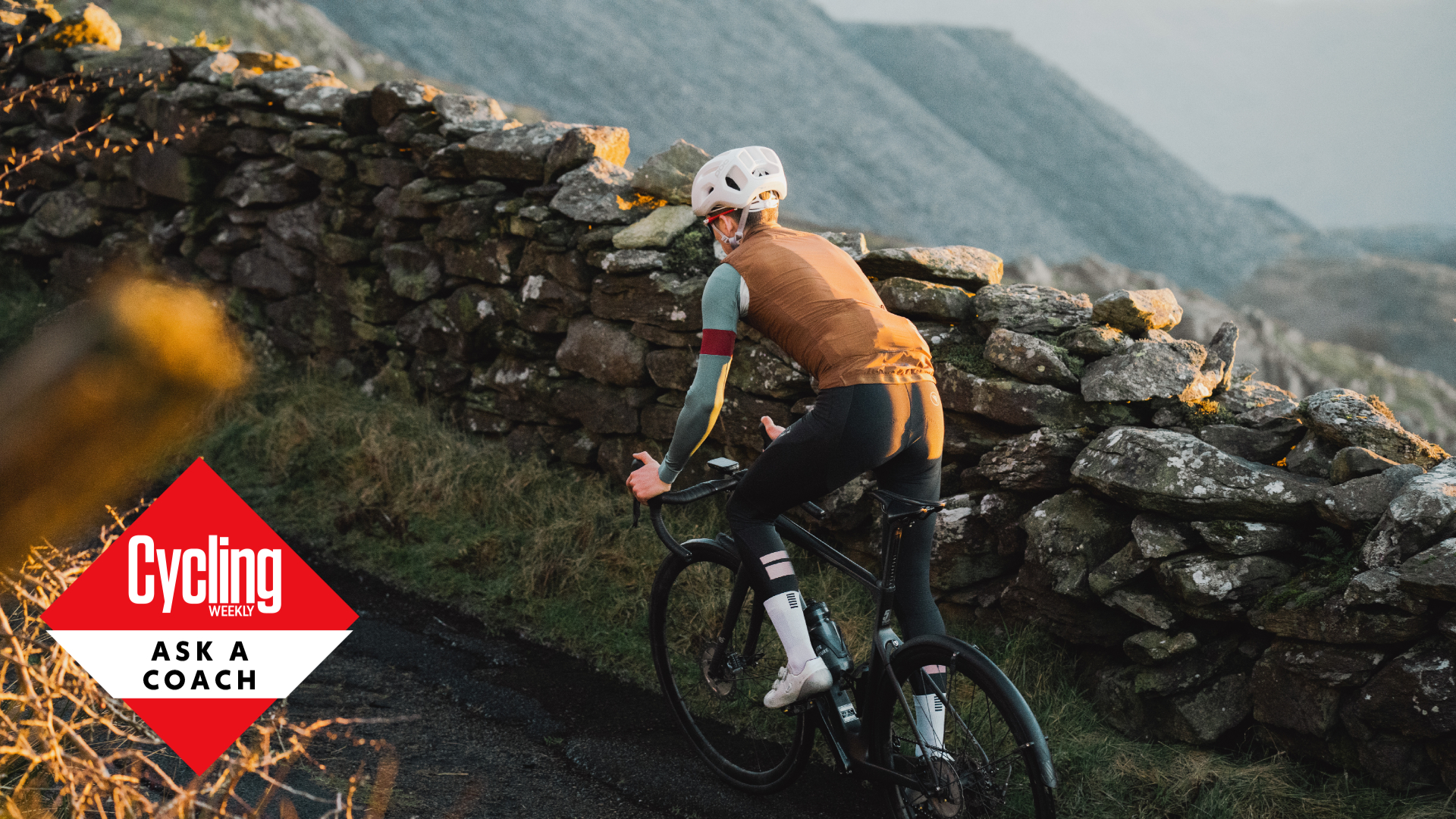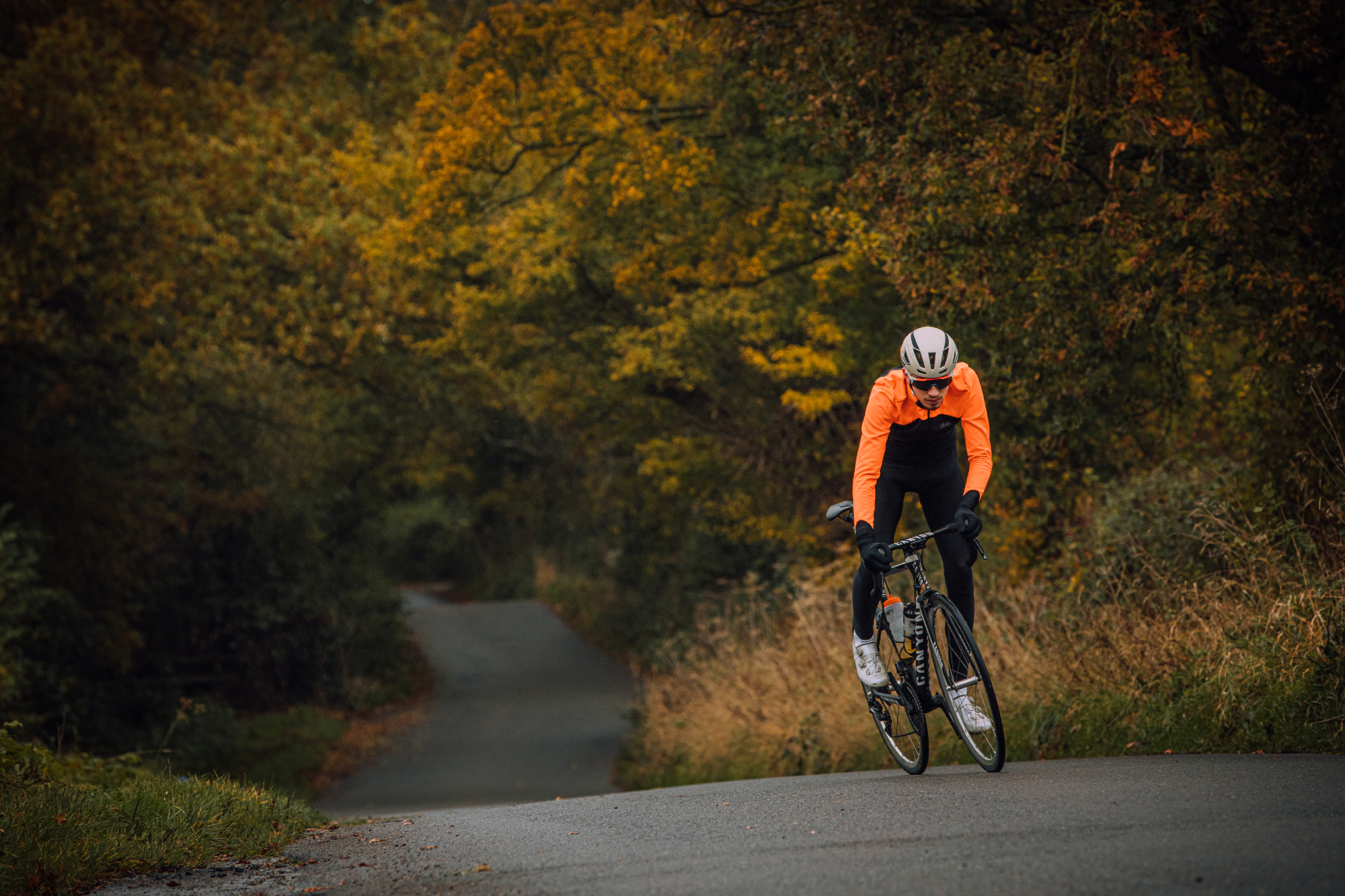Ask a coach: ‘Is it worth doing fasted bike rides?’
Are fasted rides the key to a quick performance boost? Or is omitting breakfast merely a marginal gain, only of value if you’re already training 20+ hour weeks?


The latest race content, interviews, features, reviews and expert buying guides, direct to your inbox!
You are now subscribed
Your newsletter sign-up was successful
There are a whole host of reasons why you may consider cycling fasted. You may be looking to increase weight loss through an increase in fat utilization during your ride, or you may be searching for some performance benefits. A quick search in Google and you will be flooded with options, various suggestions and advice, and you may rightly be wondering whether fasted riding has the same effect on the female physiology as on the male. Cycling coach Alex Welburn is on hand here to clear a few things up…

Performance cycling coach Alex Welburn is one of the experts who will be answering your questions in Cycling Weekly's Ask a Cycling Coach series, online every Wednesday. He's currently completing a PhD on Critical power and W' at Loughborough University whilst also managing the Performance Project, in which he coaches athletes and provides consultation.
The concept of fasted rides
Fasted rides typically occur in the morning, with breakfast being omitted and maybe a black coffee to make us feel awake. Often, we will have had eight to 12 hours without consuming food - most will class this as being fasted. But it is a little bit more technical than that. The aim is to have low glycogen availability, i.e. your internal stores are low.
This is to enhance fat utilization, i.e., our ability to utilize more fats as a fuel source, thus sparing our limited storage of glycogen. Evidence also suggests it can enhance training-induced skeletal muscle adaptations. In short, this increases the number of mitochondria we have, which are the energy powerhouses of our cells.
But it isn’t quite as simple as getting up and just doing your morning ride on an empty stomach. Fasted rides aren’t a magic hack that will automatically guarantee you performance gains otherwise unattainable with breakfast.
To get the most out of fasted rides, you have to really understand what you’re trying to achieve - and ensure you go the right way about it. For instance, if you have a large meal at dinner time, your body may not be in a low glycogen state by the morning, meaning you won’t reap those training benefits despite having skipped breakfast.
For your everyday cyclist, doing your morning ride fasted may just fit into your life easier. I often had an early commute, 30-40 minutes and I never enjoyed eating breakfast that early, so I often had it after. Did this improve my performance? Unlikely. It was always an easy session, so being fasted would not have compromised my ability to complete it.
Carbohydrate periodization and fasting

A research paper by Impey et al. (2018) ‘Fuel for the work required’ highlights the term carbohydrate periodization which is about fuelling for the work you need to do - but also using this periodization in line with your training to get the most of fasted riding (or, let’s call it, training with low glycogen availability). Normally, you would plan it over a few days and consider meals of either high, medium or low carbohydrate content to make planning easier.
The latest race content, interviews, features, reviews and expert buying guides, direct to your inbox!
You can break this down into sections: 'pre-training meal', 'during training', 'post-training meal' and 'evening meal'. You would design your training so you can still complete your training session, then post training you may go to a low glycogen state, and during training would be low, too.
Training would typically be a Zone 1 endurance ride, because if there was intensity the training would be compromised as you simply would not be fuelled enough to complete it. Post-training you would keep yourself in a high glycogen state, allowing these enhanced signals to make the adaptations we aim for: i.e. more mitochondria and thus able to produce more power.
It may seem complex. This approach has been used by James Morton at Team Sky (now Ineos Grenadiers) who was one of the authors of the mentioned paper. It’s quite common amongst WorldTour teams, who have the support of physiologists and nutritionists.
I have used this with athletes previously where I have also worked with a nutritionist, so we could best optimize the training and nutrition for the individual - without comprising the training sessions and overall progression.
What should I do if I have only 6 hours to train?
But, if you only have six hours to train, more often than not your focus should be on quality, which, to a large extent, means intensity. This isn’t to say training in a low glycogen state isn’t going to be beneficial, but it’s unlikely you would feel the benefits in comparison to sticking to some interval work to improve your FTP/Critical Power.
If you were looking for some variety, rather than a 60-minute fasted session, think about adding in a strength session instead.
If your goal is weight loss, while you may utilize more fats in comparison to carbohydrates, you may also find yourself quite hungry after you have finished and over-compensate with the calories you consume - so do consider this.
Will fasted rides be detrimental to my performance?
No, having the odd fasted session will be no problem. Always start small and build up and keep the intensity low. Most of my morning sessions were fasted, not because that was what I wanted, but because it made life easier for me in the mornings - which is also something to consider.
However, according to Dr Stacy Sims, a world-leading physiologist who specialises in female nutrition, training and wellbeing, women should apply caution to fasted riding. Men and women can both fall foul of low energy availability (LEA), but women are particularly susceptible. In the long term, underfuelling can have serious implications for overall health including endocrine dysfunction and higher risk of bone fractures. For women, the obvious sign of LEA is disputed or missed periods.
"Women tend to burn more fat and amino acids during exercise compared to men, regardless of the intensity," says Dr Sims. "Men blow through carbohydrate and have to work harder to burn fat. Women are born with more of the protein and mitochondria to burn fat."
In summary, while female bodies are predisposed to going long, women are better off fuelling the fire with carbohydrates at all times – before, during and after workouts.
Should I do fasted rides?
It depends on what your training is like, the time you have available, your goals and you need to bear in mind the differences between men and women (see above). I’m an advocate of trying things out and then deciding. Would I use it with an athlete that has only six hours to train? Very unlikely as other sessions will have a greater impact. But if it fits into your life, or you’re curious to try it out, go ahead. As always, I recommend working with a specialist to get the best results.
Alex is a Physiologist, Performance Coach, who also lectures occasionally at Loughborough
University where he is completing his PhD in Critical power and W'.
After competing for over 10 years on the bike, where he has competed for GB in both
cyclocross and mountain bike events, he now spends his spare time in the mountains as an
aspiring guide. Alex has worked with cyclists of all levels over the last 9 years, from ultra-
endurance world champions to the Women’s TDF. Supporting his PhD he manages The
Performance Project, consulting with and coaching athletes. Finally, he is also a proud
sponsor of southern based LAKA X Pedal Mafia Race Team.